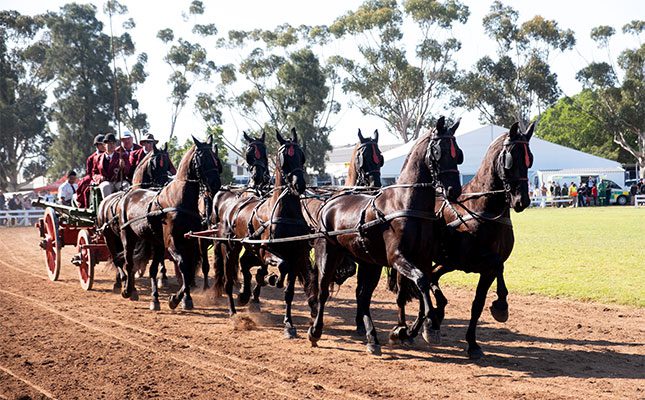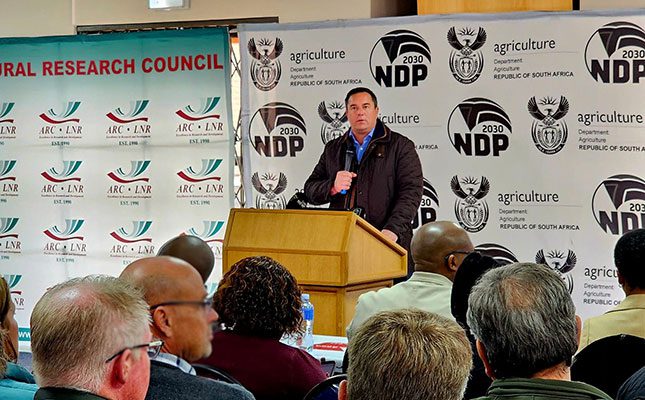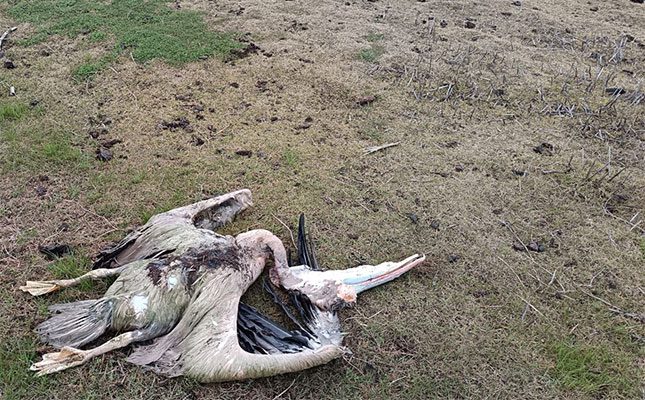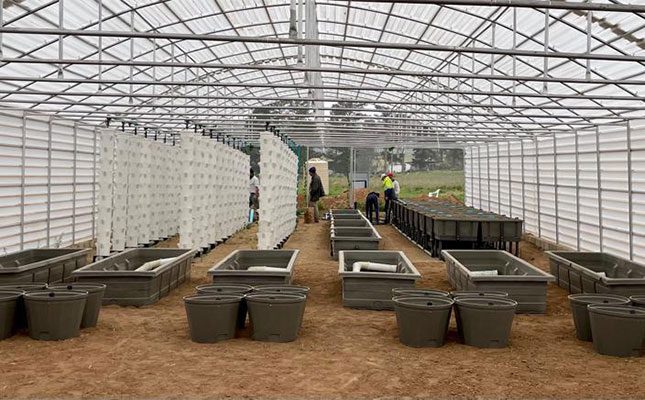
Photo: Jeanne van der Merwe
The unusually wet summer in parts of South Africa has increased the risk of African horse sickness (AHS), making it even more important for horse owners vaccinate their animals against this devastating disease.
According to the South African Equine Veterinary Association (SAEVA), there are currently sufficient stocks of vaccine available.
The Western Cape Department of Agriculture points out on its website that AHS is a notifiable viral disease “that affects all equines and is often fatal”.
The disease is endemic to most of South Africa, except for parts of the Western Cape that fall within the AHS controlled area. Annual vaccination is compulsory in this area, known as the Infected zone.
The AHS controlled area comprises the following:
- The free zone, which covers Cape Town only. This zone is intended to remain AHS-free and hosts the Western Cape’s export quarantine facility;
- The surveillance zone, which surrounds the free zone and has increased monitoring and control; and
- The protection zone, which acts as a buffer between the surveillance and the infected zones.
“In the infected zone and the protection zone, annual vaccination is legally required,” the department said.
“Vaccination should take place during the low-risk season, which runs from 1 June to 31 October. This practice significantly reduces the incidence of illness and death, limits virus transmission, and supports the safe movement of horses – crucial for the viability of the equine industry.”
In the protection zone, vaccination is strictly permitted only during the low-risk period, outside of the high vector activity season.
Should you vaccinate your horses?
The department stresses that it is crucial for continued equine exports that the free and surveillance zones maintain their AHS-free status. Therefore, vaccination in these areas is only permitted with prior written consent from state veterinary services and is typically considered in specific cases, usually related to the horse’s future movement.
“Should a horse move into the controlled area – or between areas within the controlled area with differing levels of control – vaccination becomes compulsory. The horse must be vaccinated by a registered veterinarian no more than 24 months and at least 40 days prior to movement. Vaccination details must be recorded in the animal’s passport,” according to the department.
OBP has vaccine monopoly
The only registered vaccine in South Africa for AHS is the live attenuated vaccine produced by Onderstepoort Biological Products (OBP), but shortages of this vaccine have plagued the equine industry for several years.
Dr Sean Miller, chairperson of the SAEVA, told Farmer’s Weekly that there currently appeared to be no issues with vaccine stock availability. Last year, stock levels were low at the beginning of the vaccination season, but sufficient supplies became available later in the year. However, in the two years prior, stocks were insufficient.
In 2022, the Southern African Agri Initiative launched legal steps against OBP and released distressing images of infected horses dying from the disease due to a lack of vaccination.
That year, the vaccination window had to be extended to 31 December due to the protracted vaccine shortage.
Last year, the SAEVA issued guidelines outlining the order in which horses should be prioritised for vaccination. It explained that priority should be given to horses younger than three years old, or that had received fewer than three sets of vaccinations previously.
Next in line were horses in high-risk AHS areas, as well as those in low-risk areas that were due to travel to high-risk areas during high-risk times of year and had not been vaccinated in the past 24 months.
The final group was horses that had been vaccinated fewer than six times, and competition horses that regularly moved between low- and high-risk areas.










